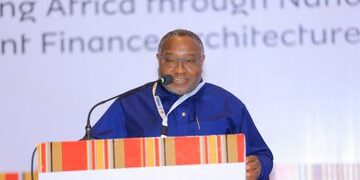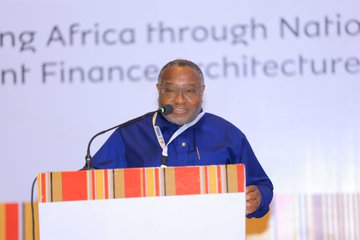Munyonyo — The Uganda Development Bank (UDB) has been hailed for championing inclusivity in development finance, as government and international experts converged at the Uganda Development Finance Summit 2025 to chart a new path for Africa’s growth.
Prof David Luke, trade economist at the London School of Economics (LSE), positioned trade as the linchpin of Africa’s economic transformation, calling for stronger alignment between finance, investment, and regional integration.
Delivering the keynote address, Prof. Luke emphasised that development finance alone cannot drive growth without active trade flows. “Trade is the key to unlocking development finance, managing debt, strengthening institutions, and sustaining the social contract between state and society, enabling investment in social policy, health, education, and more,” he said.
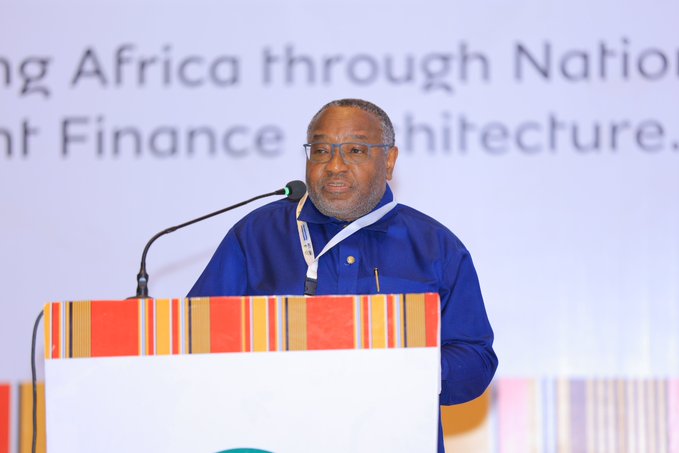
Prof Luke praised the Uganda Development Bank for convening a world-class summit bridging trade and finance. “I have been a trade economist for 30 years, and this is the first time I have been invited to a development finance conference. Too often, trade experts do not engage with finance experts,” he noted.
He highlighted Africa’s growing middle class and rising intra-African trade as opportunities to strengthen the continent’s industrial base:
“Africa’s growing middle class is creating new markets and rising demand. While much of the continent’s manufactured goods are still imported, we are beginning to see a shift. Afreximbank reports a 12.4% increase in intra-African trade between 2023 and 2024, reaching USD 220.3 billion, excluding informal trade,” Prof Luke said.
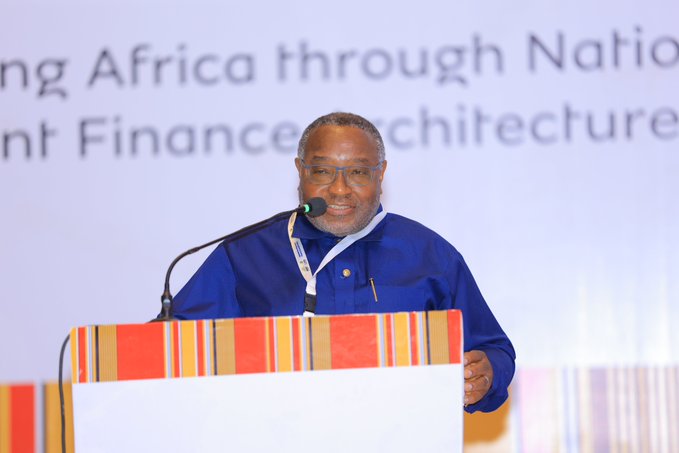
Prof Luke further explained the broader benefits of trade, beyond monetary gains: “Trade flows carry ideas, technology, know-how, productivity, scale, and competitiveness. Businesses that trade are more likely to be competitive, pay higher wages, create formal jobs, and contribute taxes. Africa has no Plan B; trade is the one plan.”
Speaking at the opening session, Hon. Justine Lumumba Kasule, Minister in the Office of the Prime Minister, commended UDB for breaking the perception that development banks only serve large corporations. “I want to thank UDB for demystifying the notion that development banks are only for big investors. By establishing a facility for women and youth, they ensure that if 30% of a company or project is owned by youth, women, or both, it is eligible for support,” Lumumba said.
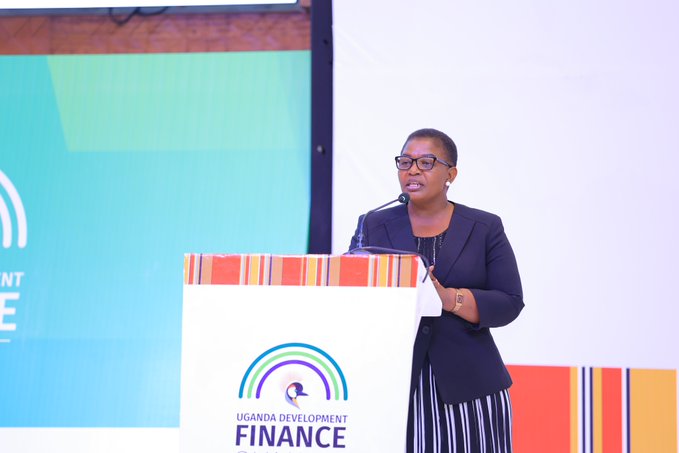
She emphasised that aligning government programs with financial institutions creates a lasting impact. “Experience shows us that when government programmes are complemented by financial institutions, the result is not just growth but transformation. Farmers are linked to markets, women and youth become employers, and communities gain access to better services,” she noted.
Lumumba, who represented Rt. Hon. Robinah Nabbanja, Prime Minister of Uganda, stressed the urgency of the summit’s agenda. “This gathering could not have come at a more critical time. Our people, especially youth and women, are looking to us to provide solutions that create jobs, close infrastructure gaps, and build resilience against shocks,” she said.
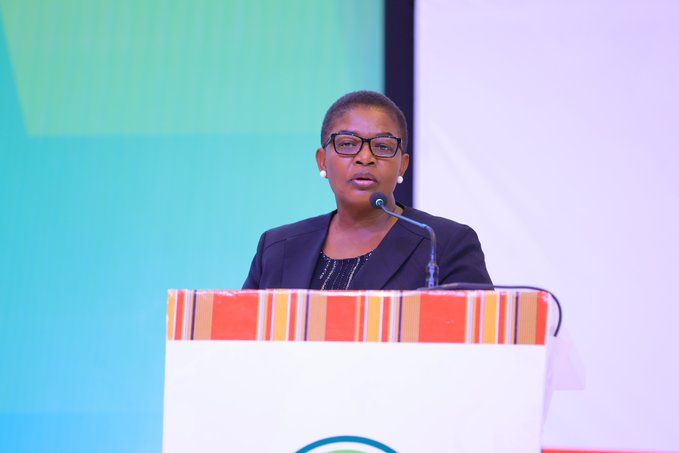
Lumumba urged continued collaboration between governments, financial institutions, and private actors. “It is my honour to join you at this landmark Uganda Development Finance Summit, bringing together leaders from across Africa and beyond to explore how development finance can shape our collective future,” she said.
The summit, held at Speke Resort Munyonyo, brought together leaders from across Africa, including trade economists, regional financiers, and development partners.
Shifts in the Global Trade Order
Day Two of the summit focused on Africa’s place in a changing global trade environment. A high-level panel moderated by Dr. Francis Mwesigye, UDB’s Director of Economic Research & Knowledge Management, explored opportunities and risks in an era of geopolitical uncertainty.
Kudakwashe Matereke, Afreximbank’s Regional Director for East Africa, noted that Africa’s unity through the African Continental Free Trade Area (AfCFTA) was one of the continent’s most significant achievements.
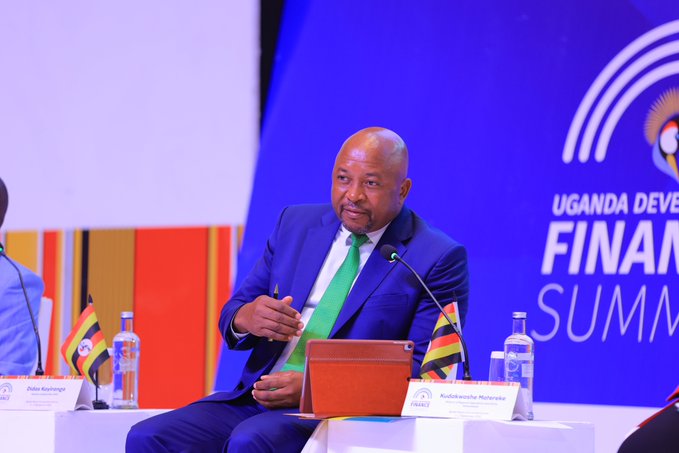
“The rise of regionalism has been positive, exemplified by African countries signing up to the AfCFTA. This was likely one of the most significant collective responses we’ve seen,” Matereke said.
He added that Afreximbank is scaling support for industrial parks to promote African-made goods: “We have increased support for the Fund for Export Development in Africa (FEDA) to back manufacturing in Benin, Togo, and Gabon. We are now in negotiations with Kenya to secure space for the ARISE Integrated Industrial Park.”
Allen Asiimwe, Deputy CEO of TradeMark Africa, called for removing regulatory bottlenecks that stifle intra-African trade. “If Ghana has produced drugs, why should those drugs have to be retested in Uganda and Tanzania before being recognised? This causes weeks and months of delays,” she said. “Almost everything we use is imported, yet Africa manufactures 45% of what we trade with each other. If we can trade easily with China, why can’t we trade with each other?”
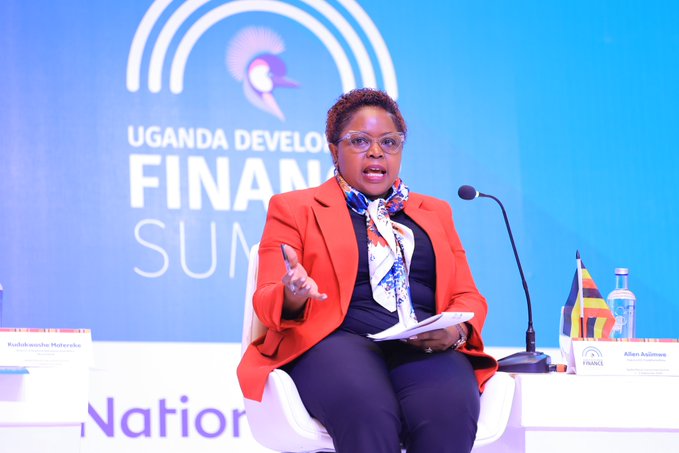
Edem Adzogenu of Afrochampions emphasised the need to build infrastructure and manage integration challenges. “Those who benefit from common markets often do not understand markets beyond their borders, and they lack the public infrastructure needed to drive integration,” he said.
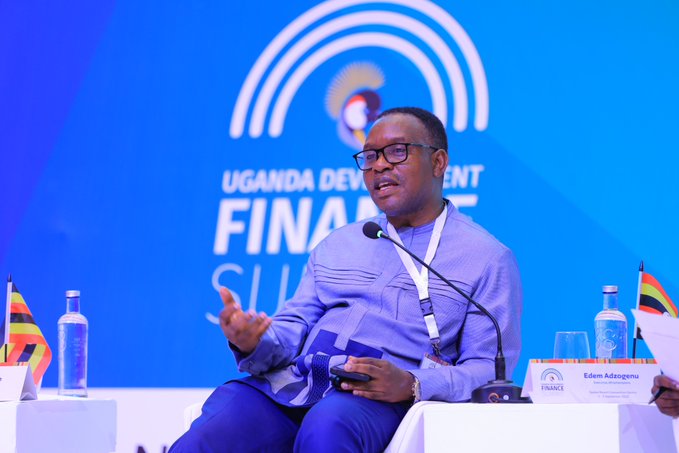
Didas Kayiranga, Resident Underwriter at ATIDI, shared how regional financial instruments are easing trade logistics. “For a trader moving goods from Mombasa to Burundi, they used to buy a bond at every border. Now, a single bond covers the journey, cutting costs and saving time. ATIDI is also providing sufficient capital and credit support to SMEs to unlock financing constraints,” he explained.
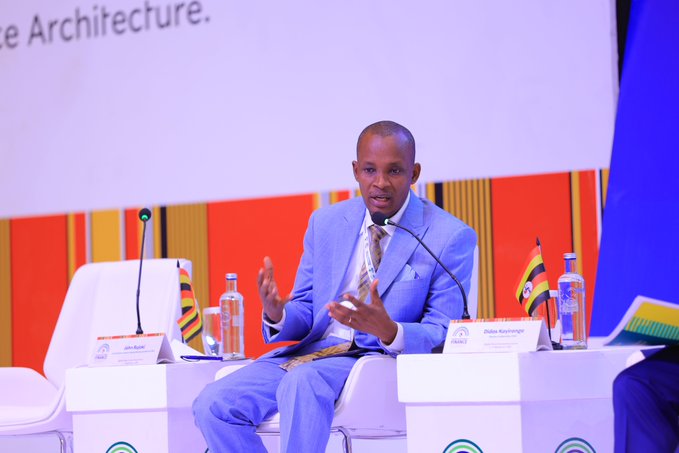
The discussions underscored that Africa’s development trajectory depends on bold partnerships, trade integration, and financial innovation — with Uganda positioning itself at the heart of this transformation.

